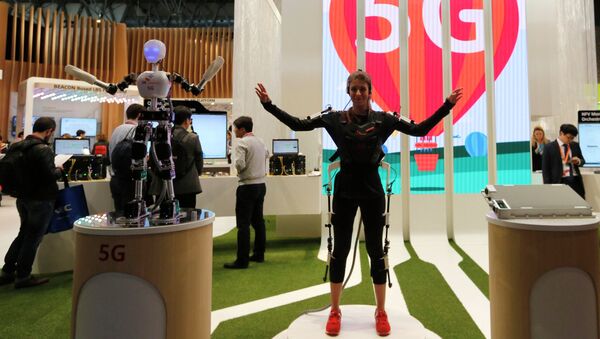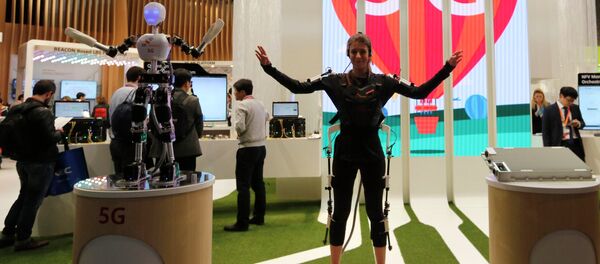Sputnik: So I'm just wondering if you could First tell me, what is 5G? And how does it improve upon 4G?
Professor Nigel Linge: 5G is simply the next generation, hence 'g', of our mobile phone networks. So the mobile phone in the UK was launched in 1985 and since then we've advanced the technology, improved its capabilities that had reached what we call 4g the 'Fourth Generation'. And today, EE was the first mobile phone operator to switch on the 5G service. So 5G inevitably is technically more advanced than its predecessor. And the headline figure is really the most noticeable impact that people will see in the short term is an improvement in download speed, that is the download from the internet. And then afterwards, as the network's improve and roll out further, even higher than that.
Professor Nigel Linge: The launch of a new technology is always the same, you never get the full thing on day one. It's never been like that. It never will be like that. So all of the operators are launching initial services. And from that point, they will evolve to the full potential, the technology offers to see the real full potential of 5g. So a phased rollout is pretty typical and consistent with what's gone before. And the other operators will be doing something similar.
Sputnik: What would you say is the sort of the man on the street who would just basically say, so is this just about faster phones?
Professor Nigel Linge: As of today, on day one of the launch, it is about faster phones. But that is not to see the full potential. So yes, faster phones, but also more consistent connection, you can find yourself now in the middle of a city with allegedly good 4G connection, and suddenly, you can't get much connectivity at all. And one of the reasons for that simply too many people in a small place, trying to do things on their smartphones. So 5g will also improve that consistency of experience, particularly in city centre areas. And of course, the other one that a lot of focus has been put on is the rural area where you have the exact opposite problem, of fewer people in a bigger area.
READ MORE: Huawei Executive Says Company Preparing to Mitigate US Ban Effect on 5G Rollout
Sputnik: I've noticed concerns raised about 5G and potential health risks. A lot of this seems to be coming from the American networks that are deployed what is called 24GHz radio frequencies. The UK operators the 5G services launched today, and others that will launch later this year, are actually running on 3.4GHz communications.
Professor Nigel Linge: That is the radio frequency from the mast to your handset that is lower than existing WiFi. WiFi runs at 2.4GHz and 5GHz. I think there is a lot of concern being raised. But I don't see that being substantiated when you actually look at these issues about frequency that we're deploying in the UK, the power levels, Now obviously I'm not a health expert. I can only give a personal opinion on this but my personal opinion is I don't see in the UK any added health risks from just by the fact is 5G as opposed to be 4G.
The views expressed in this article are those of the speaker and do not necessarily reflect those of Sputnik.





